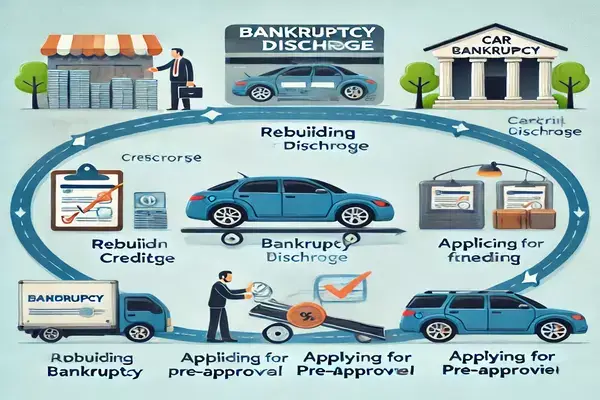
Should I Take a Finance Class in College? Essential Insights for Students
For most students struggling to manage money in this ever-changing world, the apt question arises: “Should I take a finance class at my college?” It is not your one-size-fits-all all-type answer, but it works for you ten-fold. A finance class may enhance your learning experience by acquiring fundamental money management skills and enhancing future job opportunities. In this writing, we discuss 7 Crucial Reasons Why You Should Have Taken A Finance Class In College.
Key Takeaways
- Financial Literacy: A finance class can help students understand basic money things such as budgeting, investing, and saving.
- It allows you to access various career opportunities, making yourself relevant in finance.
- After all, it reflects your ongoing challenge with personal finance, which should assist you in making informed decisions long after college.
- This applies to students of all majors because understanding financial literacy is a universal skill.
What Will You Learn in a College Finance Class?
The first question you should ask is what it will teach — what can you learn in a finance class, anyway? Commonly, these courses cover various topics about financial planning and real-world situations you should expect to encounter. Here’s a breakdown:
Personal Finance/Budgeting: Students learn ways to handle personal finances, allocate resources, and save for future goals. Budgeting is certainly a skill we all need, whether at home or in business ownership.
Investing and Portfolio Management: This course provides an understanding of investing, including stocks, bonds, and more complex securities like municipal bonds. Balancing risk and reward is crucial for long-term success in investments.
Financial Markets: Learn the fundamentals of how global financial markets function and impact economies. This includes understanding central banks, interest rates, and inflation control.
Taxation: Learn the basics of tax laws and how to file taxes—an essential skill for every adult throughout life.
Tip: Taking notes and reviewing financial scenarios regularly can make these concepts clearer and more practical. I encourage you to read more about this blog here: Best Computer to Get as a Finance Major
How Does a Finance Class Benefit Your Career?
Finance knowledge affects your career, whether you are an aspiring accountant, financial analyst, or even a business owner. According to the U.S. Bureau of Labor Statistics, finance careers—including financial analysts, accountants, and financial managers—are expected to increase by 8% over the next decade.
Finance is Not Just for Bankers: Careers in finance are varied. Even areas like healthcare, technology, and government require financial professionals.
Competitive Edge: If you are entering any business-related field, understanding finance gives you an advantage. You will bring practical financial acumen that underpins organizational success.
Quote: “For your career, finance information is a must. It makes you apt in taking better decisions even if you are not in the finance domain itself.” —Professor Jane Doe, University of Finance Studies
Enhancing Personal Finance: A Lifelong Skill
One of the biggest reasons students ask, “Should I take a finance class in college?” is to improve their financial literacy. Many recent college graduates struggle financially due to student loans and living expenses.
Debt Management: A finance class teaches how to manage debt responsibly, including understanding loan interest rates and the benefits of early repayment.
Plan Ahead: It’s never too early to start retirement planning. You’ll learn about 401(k) plans, IRAs, and other long-term investments to maximize their benefits.
Credit Score Management: Learn the importance of maintaining a good credit score and how it affects home ownership, loans, and even job opportunities.
Advice: Save part of your earnings from a part-time job now to build an emergency fund.
Who Should Consider Taking a Finance Class?
Contrary to popular belief, you don’t have to be a business major to take a finance class. Students from all disciplines can benefit from understanding finance.
Business and Economics Majors: For obvious reasons, a finance class is integral to these majors. It forms the backbone of many business decisions.
STEM Students: Engineers and tech professionals often work on projects that require budget management or investment in research and development.
Arts and Humanities: Freelancers, artists, and non-profit workers need to understand how to manage irregular income and taxes effectively.
Finance Class for Entrepreneurs: Building Financial Confidence
If you want to go into business for yourself, a finance course is priceless. It teaches you the financial aspect of entrepreneurship, such as:
Raising Capital and Cash Flow Management: Learn how to raise capital, manage cash flow, and minimize financial risks.
Financial Statements: It is essential for an entrepreneur to read income statements, balance sheets, and cash flow statements to understand the status of their business.
Growth Strategies: Finance classes cover everything needed to scale a business sustainably, including ROI (Return on Investment) and break-even points.
Table: Financial Concepts for Entrepreneurs
| Financial Concept | Importance | Application |
|---|---|---|
| Cash Flow Management | Avoid liquidity issues | Daily operations management |
| Return on Investment | Measure profitability | Decision-making for business growth |
| Break-even Analysis | Determine sales goals | Long-term planning |
How Finance Classes Shape Financial Decision-Making
Financial Literacy — Probably one of the best things to learn and practice under guidance is financial skills, as making smart money decisions early in life saves you a ton. The Financial Industry Regulatory Authority (FINRA) emphasizes that financial education is needed at every income level to support better decision-making.
Understanding Risks: Whether investing in stocks or managing a company’s finances, finance teaches you how to balance risks and rewards responsibly.
Cost-Benefit Analysis: You’ll develop the ability to assess whether financial decisions are beneficial in the long run—a skill that goes beyond college.
Highlight it gently: Financial literacy gives you more confidence in managing money and making future decisions.
Practical Applications: How Finance Skills Transfer to Everyday Life
But you may be thinking, “Should I take a finance class in college?” because you don’t know how it relates to real life. The reality is, financial skills are universally transferable. Here’s how they apply to real-life scenarios:
Home Buying 101: Understanding mortgage rates, down payments, and property taxes is essential when purchasing a house.
Saving for Big Purchases: Plan effectively for large expenses like cars, vacations, or even weddings.
Deciphering Health Insurance: Knowing the basics of healthcare costs and insurance premiums can save you a significant amount of money.
Conclusion
In conclusion, the question, “Should I take a finance class in college?” can be answered with a resounding yes for most students. The skills learned not only prepare you for a variety of careers but also give you the tools to manage your personal finances effectively. Whether you’re pursuing a degree in business or something entirely different, financial literacy is a universal asset. What about you—are you ready to enroll in a finance class and enhance your future? If you enjoyed this, check out our other blogs on career preparation and financial planning.
FAQs
What are the career benefits of taking a finance class?
A finance class opens doors to careers in banking, accounting, and even entrepreneurship, giving you a competitive edge in the job market.
Do I need to major in finance to benefit from the class?
No. Students from all majors can benefit since financial literacy is applicable in every field.
Will a finance class help me with personal finances?
Absolutely. You’ll learn budgeting, saving, and investing, skills that will last a lifetime.
How difficult is a finance class?
While it can be challenging, the real-world applications make the effort worthwhile.
Is taking a finance class online a good option?
Yes, as long as the course is comprehensive and offers practical examples and real-world case studies.
Learn More About Should I Take a Finance Class in College? Essential Insights for Students from makebetterfinance






